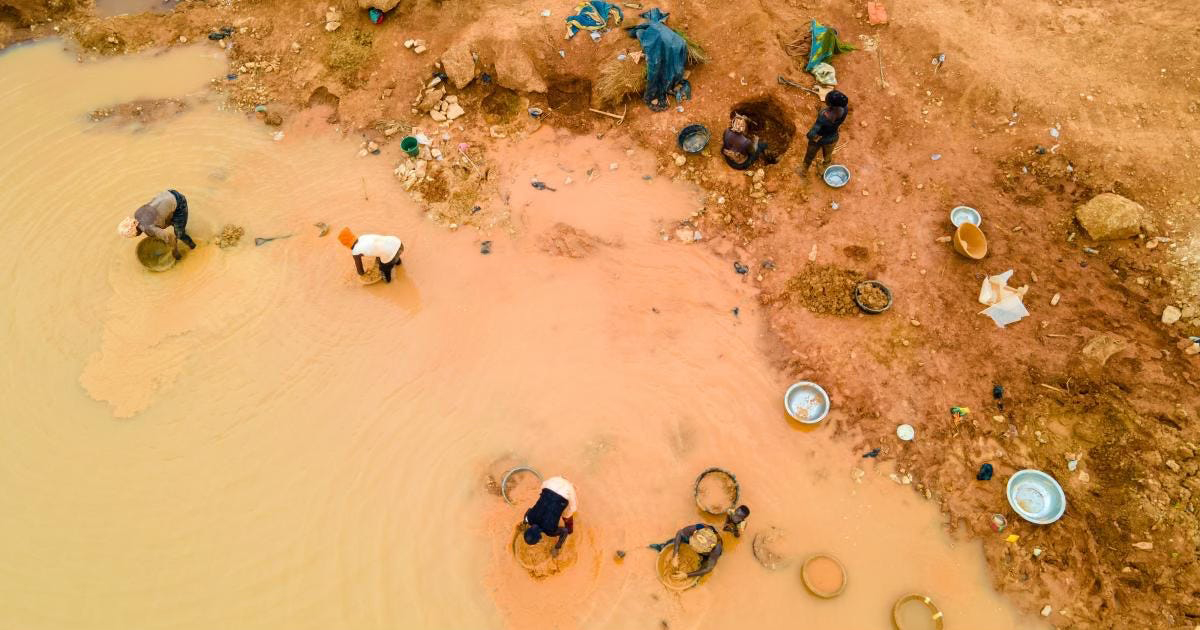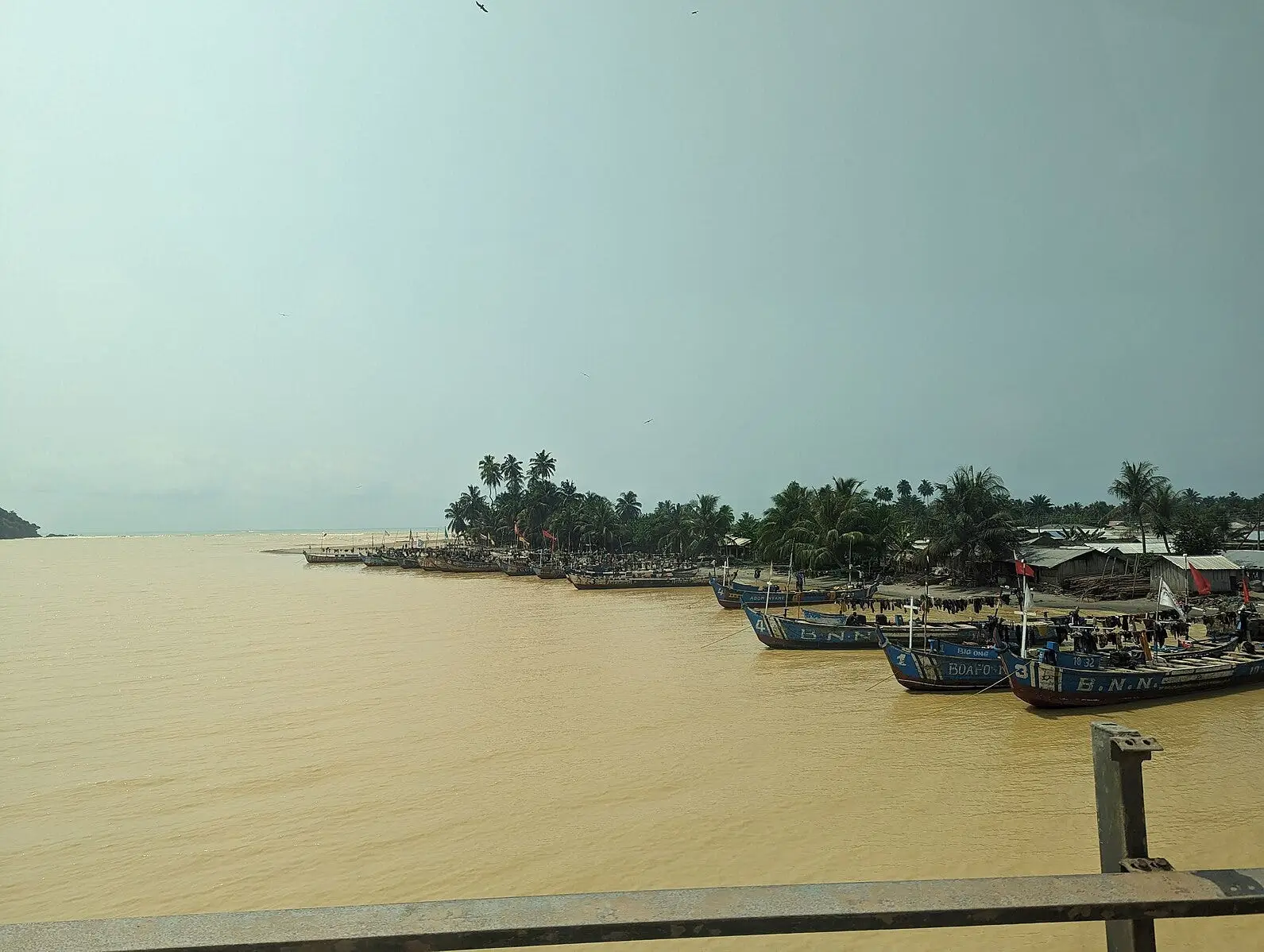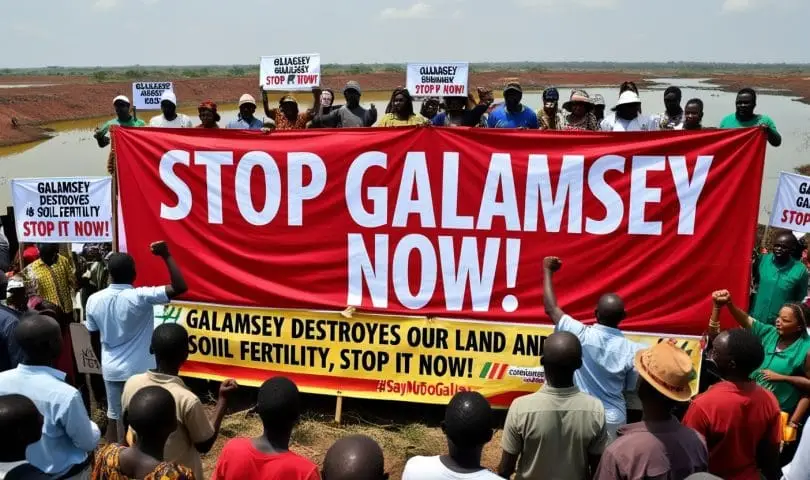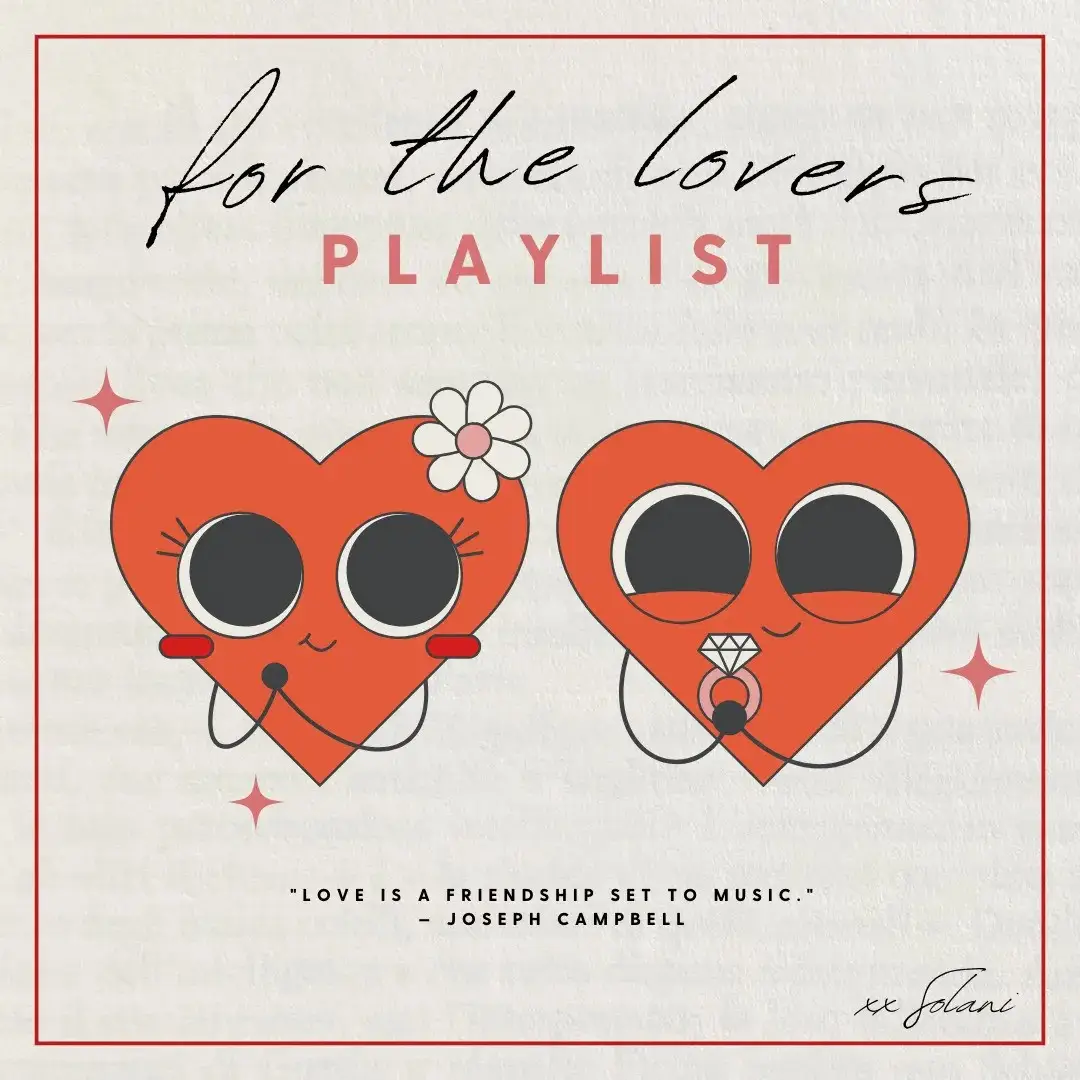Detty December to Dirty Water: Why You Need to Care About Ghana Beyond the Parties
Oct 01, 2024
By Annabell Amankwatia
For most of us in the diaspora, frequent visits to the motherland have become a regular tradition, especially to experience ‘Detty December’, a popular term referring to Ghana’s vibrant party culture endless music, till-dawn celebrations, concerts, and more festivities during December. But while many of us go to Ghana for a good time, there’s another side to the country that needs urgent attention the “detty” happening in its rivers, forests, and communities, thanks to illegal mining, also known as galamsey.

Image Source: Image from Natural Resource Governance Institute, Ghana.
Galamsey: A Toxic Mix of Greed, Corruption, and Poverty
Galamsey, derived from the expression “gather them and sell”, is a local term for illegal small-scale gold mining. To sum it up bluntly, it is a product of when greed, corruption and poverty meet. Galamsey is nothing new, in fact, it goes as far back as the 1980s. Now, for some of us (myself included), who were unaware of how long this has been going on, it’s pretty disappointing to learn. But let’s be honest, are we truly surprised? Because the reality is what’s an African country without corruption, right?
So What’s Happening Now?
On 21st September 2024, citizens took to the streets of Accra for a peaceful three-day protest against illegal mining practices and other issues affecting the country. Yet, just three days before, police secured an injunction against the demonstration, despite being informed by the #Freethecitizens movement three months in advance. During the protest, several arrests were made, and those detained were reported to have been held for 48 hours without food or water.
After seeing pictures, learning about the reasons why children are involved, and realising how long this has been happening, it’s hard not to get emotional. Initially, my aim was to approach this from a factual standpoint, but the more I researched, the more impossible it became to separate my emotions from the facts.
Exploitation and its Consequences
At what point do we, as a people, get tired of twerking for the approval of foreign interests, getting excited by dollars, pounds, or (in this case) yuan at the expense of our own?
When children and young adults are risking their lives just to scrape by and put food on the table, while those in power turn a blind eye, allowing foreigners and even their fellow Ghanaians, to thrive on the desperation of our people? Our soil is rich, and yet, we’re left with what? A country so wealthy in gold that it was once called the Gold Coast and Africa’s largest gold producer but the benefits of our riches and natural resources are only evident in a foreign man’s land. Yet, when Ghanaian citizens peacefully stand up for themselves and demand action, asking the very leaders who claim to be ‘building a better tomorrow’ to step in and stop the destruction of their land, look how quickly handcuffs and the legal system step into action. Unfortunately, for the everyday Ghanaian, there’s no bribing the ‘big dogs’ to make them care.
It is estimated that up to 50,000 people participate in galamsey, including thousands from China, neighbouring West African countries, and Ghanaians themselves. Rivers once vital to communities, like the Ankobra River, are now so polluted with mercury and other toxic chemicals that they’re unsafe for drinking. Deforestation and soil erosion caused by illegal mining have destroyed vast areas of fertile land.

“Ankobra River” by Mwintirew is licensed under CC BY-SA 4.0. Available at Openverse.
This isn’t just an environmental issue; it’s a social issue . Many young people are forsaking their education due to poverty, turning to galamsey as a source of income, risking their lives and their future.
Imagine having to drop out of university, or even secondary school, to work in mining tunnels with only basic skills passed down from family or friends. This shouldn’t be someone’s reality.
Through articles, research papers, documentaries, and interviews, one question kept nagging at me: What kind of life is really being gained here? People are mining to survive, to afford basic necessities, but in doing so, they’re slowly being poisoned by mercury exposure and other pollutants that cause severe health issues, including neurological and developmental problems. And if that doesn’t claim their lives, there’s the constant danger of collapsing tunnels, with no proper training; just human instinct and desperation driving them.
What Can You Do?
First and foremost, I think it’s important for us in the diaspora to remember that no matter where you are in the world, Africa will always be a part of you. When the white man is quick to remind you that you are on “their” land and to “go back home”, it would be foolish to ignore the issues that plague Africa.
In How Europe Underdeveloped Africa, Walter Rodney emphasises that it is the responsibility of every African, no matter where they are in the world, to contribute to Africa’s rebuilding and development. Africans on the continent and in the diaspora have a duty to reverse the damages done and strive for unity . So, that’s exactly where we’re starting

Image source: Sankofa Online
Unity and Raising Awareness – Show your support to those back home by sharing posts, articles, having conversations, and using your voice. Let it be known that we stand with those fighting for a better tomorrow and CLEAN WATER. Joining or supporting movements like #FreeTheCitizens, which advocates for policy changes and public support, helps amplify the cause.
Educate Yourself – There’s nothing cute about being an ignorant bystander who only comes out for Detty December. If you love Ghana, love it beyond the parties.Educate yourself on what’s happening, Google is free and below are suggested articles, books, and videos you can watch to be better informed.
Volunteering and Donating – Support organisations that combat illegal mining, protect the environment, and advocate for human rights. Afrikids, an organisation ensuring children receive the education they deserve and run a ‘‘Back to School Campaign”, and accept volunteers or donations to keep kids in school. Keep an eye on our Instagram for further NGO recommendations. Rodney states that “Europe underdeveloped Africa.” However, if we continue to ignore the issues not only in Ghana but across the African continent, it may soon be said that while Europe underdeveloped Africa, we as Africans abandoned it.
Further Reading & Sources
- How Europe Underdeveloped Africa by Walter Rodney: A text on the historical exploitation of Africa and the responsibility of Africans worldwide to rebuild their continent
- Afrikids: An NGO focused on protecting children’s rights in Ghana and supporting education to keep kids away from dangerous labor, including illegal mining
- BBC Documentary: The Cost of Gold in Ghana (2022): A detailed look at the environmental and human costs of illegal mining in Ghana, covering the galamsey crisis
- The Money Stone (2018): A documentary following two boys struggling to escape poverty while working in Ghana’s illegal gold mines
- Africa’s 10 Largest Gold Producers: An article highlighting Ghana’s role as Africa’s top gold producer and the ongoing challenges related to illegal mining
- GhanaWeb’s Galamsey Profile: A look at the history and impact of galamsey in Ghana, including its social and economic consequences
- Environmental Impact of Mining Activities in Ghana: A detailed study on the environmental effects of small-scale mining in Ghana, including deforestation, water pollution, and loss of biodiversity.
- A Review of the Mining Sector in Ghana: A scholarly article analysing the governance of the mining industry in Ghana and the role illegal mining has played
- Ghanaians Demand Justice for Protesters: A recent article highlighting the #FreeTheCitizens movement and the arrests during protests against illegal mining in Ghana
- #FreeTheCitizens Movement: Advocating for Change: A report on the ongoing protests against illegal mining in Ghana and the push for systemic change
- Illegal Chinese Gold Mining Leaves an Open Wound in Ghana: A report detailing the role of illegal Chinese mining operations in exacerbating Ghana’s environmental and social problems
- Galamsey and Mining Practices in Ghana: A thesis discussing the harmful effects of galamsey and mining practices in Ghana on the environment and local communities.
- YouTube Documentary: Illegal Gold Mining and Its Impact on Ghana: A YouTube documentary on the environmental and social costs of illegal mining in Ghana
Your Next Read

Three Things We Are Prioritising This Year
Three Things We Are Prioritising This Year

Solani’s 2025 Valentine’s Playlist
Solani’s 2025 Valentine’s Playlist

Meet Sammy; Professional By Day And DJ By Night
